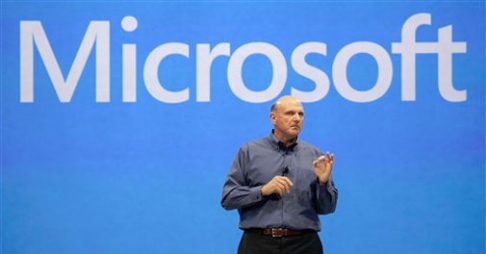In summary, Sears' four ideas are:
- Large Contracts with Fortune 1000 companies.
- Foster an enterprise app economy.
- Become master retailers.
- Change CEO's and get the stock moving.

I'm not convinced on the last two (and really getting the stock moving isn't making Windows Phone a success, it's enriching Microsoft's shareholders, which is a subtle difference), but the first two are not only smart ideas, but are ideas that are being put into practice right now. Many IT departments are adopting a 'wait and see' attitude to Windows Phone 8 in the workplace, and if everything meshes together, then Windows 8 could be one of the keys to getting Windows Phone 8 into the workplace.
And we've already looked at the upcoming 'Company Hub' in the new smartphone OS that will allow IT departments to roll out solutions to the workforce using their existing Windows tools:
With the new release, Windows Phone 8 emerges as a strong enterprise platform, one that draws on Microsoft's heritage and services in this area and that will compete head on with RIM. The shared Windows core brings with it a new security model including Secure Boot and Bitlocker Encryption. This means the entire device, including both operating system and data files, can be encrypted. There's also support for UEFI (United Extensible Firmware Interface) secure boot protocol and improved app "sand boxing" providing multiple layers of security.
Remote device management has also been improved, with the ability to integrate into existing software management solutions (presumably Microsoft technologies) allowing companies to use the same tools they current use to manage Windows PCs. Security policies now offer greater control over a larger number of device features, enabling enterprises to tailor device security to their own standards.
You can read the thinking behind Sears' four points over on Fortune.
